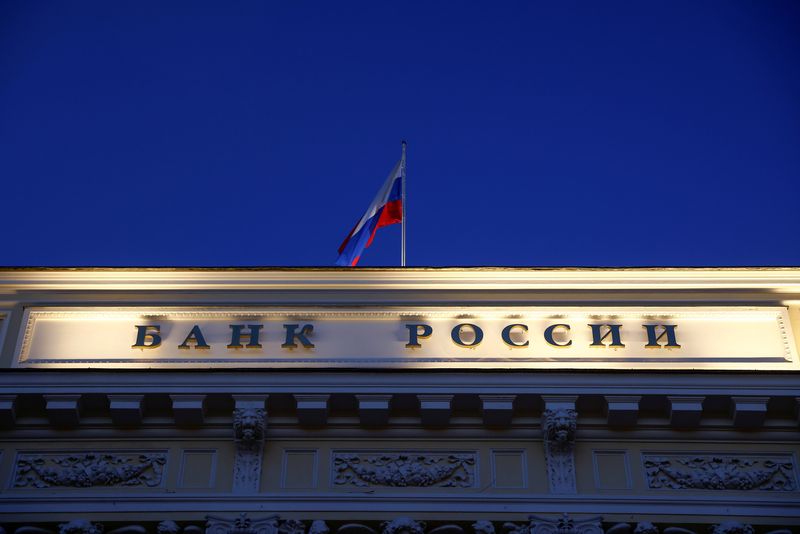[the_ad id="21475"]
[ad_1]
© Reuters. FILE PHOTO: A Russian state flag flies over the Central Bank headquarters in Moscow, Russia March 29, 2021. A sign reads: “Bank of Russia”. REUTERS/Maxim Shemetov
By Elena Fabrichnaya and Alexander Marrow
MOSCOW (Reuters) – Pressure on foreign banks operating in Russia and the widening scope of sanctions is aggravating foreign currency settlements in Russia and creating periodic imbalances on the domestic market, the central bank said on Friday.
Western sanctions on Moscow over its actions in Ukraine have curbed its use of dollars and euros, with settlements in currencies Russia considers “friendly” – those of countries that have not imposed sanctions – increasing significantly.
But this rise, led by , is not uniform, the central bank said, creating temporary imbalances and difficulties with foreign exchange liquidity.
In a financial stability review, the Bank of Russia also warned of risks from Russians accumulating funds in foreign banks, in particular if access to them becomes restricted.
In 2022 and the first quarter of 2023, Russians reduced the volume of foreign currency deposits at Russian banks by 3.1 trillion roubles ($39.9 billion), the central bank said, while 2.6 trillion roubles was transferred to foreign banks’ subsidiaries.
Meanwhile, restrictions on unqualified investors’ purchases of securities of issuers from “unfriendly” countries is contributing to individuals buying from foreign brokers, the bank said.
“In the long term, should private investors’ confidence in the Russian stock market decline, there are risks of an increase in citizens’ savings in foreign instruments and the outflow of funds from the Russian banking system, as well as a reduction in companies’ ability to attract long-term financing,” the bank said.
Russian banks hold 65.6% of OFZ treasury bonds in circulation. The OFZ share in Russian banks’ assets stood at 8.3% at the start of May and has “significant potential” for further purchases, the bank said.
But companies are also under strain from increased transport and other costs.
“One of the main drivers of rising capital costs is the change in companies’ technological processes amid a lack of access to previously used foreign equipment,” the bank said, with the pharmaceuticals, chemicals, rubber and plastic industries particularly struggling. ($1 = 77.7205 roubles)
Click Here to Read the Full Original Article at All News…
[ad_2]
[the_ad id="21476"]
